We live in a digital age, no doubt, and technology has made a number of things commonplace among us. Computers, for instance, are in so many homes and can be bought for a whole lot less than what I spent on my first desktop! Technology is at our fingertips in so many ways, which can be helpful if we’re looking for jobs or learning online. But for other aspects of life, the vastness of technology can be confusing and overwhelming.
Cameras are a great example of all of this information. You no longer have to go buy rolls of film, wind up your camera wheel, snap the right number of pictures, and then drop the film off at a store so you can pick your pictures up days later. The process has been condensed so that you can buy a digital camera, snap a picture, and then print it off at home without a dark room or serious complication.
The problem, though, is that there are so many cameras that when you decide to finally make a purchase, you might not know where to begin in choosing the right camera for you. Do you need a lot of megapixels? Is one brand better than the other? What does this shutter speed mean? You could have so many questions that you just don’t know how to address on your own.
If you find you’re in that position, keep reading for some tips on what to look for in a beginning camera!
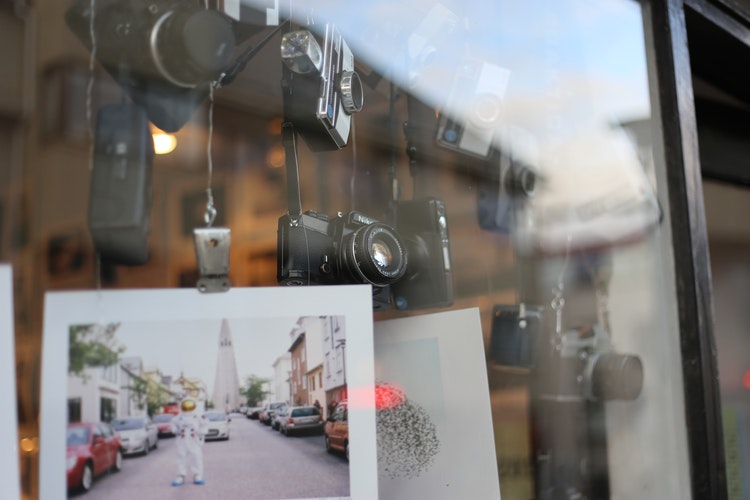
Table of Contents
ToggleWhat do you want?
This is a substantial thing to consider when you’re choosing your camera because what ends up being the perfect camera for you depends on what you’re wanting to use it for, among other preference details. If all you want is to take pictures for your cooking blog, as an example, you might find that you don’t need a camera at all if you have a smartphone (Mathies & Elrich, 2017). If you’re looking for something more technical, however, you’re advancing into a more sophisticated camera choice, and the options can vary based on details like if you plan to take pictures at night.
Now, admittedly, this probably isn’t the information you were looking for since it isn’t a concrete “buy this camera” answer. The reality, though, is that the perfect camera for you truly does depend on what you’re planning to use it for. Your best bet would be to decide what you want to do with your camera, and then do a bit of research to note what key features and elements are going to best assist you in that specific area. This way, you can find a camera that’s more *you* than some random camera off the shelf.
This also concerns how you plan to store your camera as well. If you want something to slip in your purse between shots, a compact camera is going to be your best bet. If you’re looking for something that requires more space and technology—like changeable lenses and such—you’ll have to shop for something more substantial.
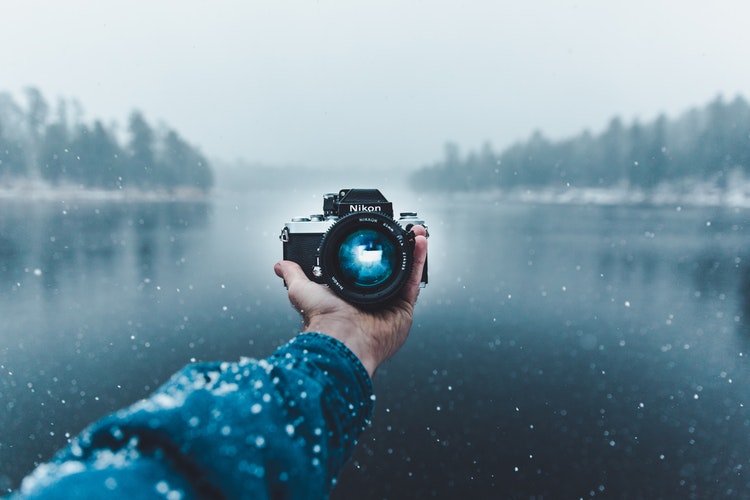
What can you afford?
Websites can insist that you won’t get a professional camera without spending near $1,000 on one, but not everyone has that kind of money laying around—and even if they do, they might have a more crucial place to direct that money. It’s a nice thought, but so out-of-reach for certain people that just stating that kind of idea makes it seem as though the people offering this advice don’t grasp reality in the same way others do. It’s actually a harsh declaration since someone who wants to buy a camera could read that, note that they can’t spend that much on a camera, and decide they might as well not bother trying to get one.
While you might not be able to get the best camera on the market, that doesn’t mean you can’t get a good camera to begin learning! Again, do your research to see what elements are necessary in your camera, and browse stores and online shops with those elements and your budget in mind. It makes more sense to buy the camera that best fits with those details than to not pay your car payment to get a pricier option! You might even think of getting a camera that’s just a bit outdated, like a model from the last couple of years, if you can find one at a cheaper price. You might be surprised at how little difference there is between this year’s and last year’s version of a camera (“How to buy a camera,” n.d.).
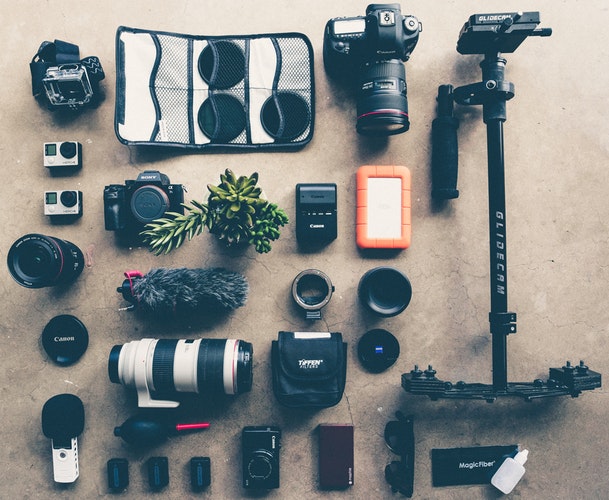
What doesn’t matter?
It’s easy to get confused about camera vernacular and not know which way to turn in regard to what you need and don’t need. When technical terms and numbers are flying your way, it’s hard to know which ones matter, in the long run. One thing that does not matter as much as you might expect is the megapixels count. This isn’t because you don’t need megapixels. It’s more because just about any camera you buy is probably going to have enough, so you shouldn’t let a higher number sway you for a beginning camera (“How to buy a camera,” n.d.).
Once more, it pays to keep your purpose for using the camera in mind when you deal with this particular issue. As an extreme example, if you’re not going to be taking pictures underwater, any camera that is prepared for that kind of excursion is equipped with details that you might never need. If you won’t need it, overall, it doesn’t matter if it’s a part of your camera.
Also note that it’s easy, if you don’t know what you’re looking for, to be convinced that one particular idea is the best for the job when it isn’t. An example is if you’re choosing between a mirrorless camera or a DSLR. You could have a salesperson standing right beside you, persuading you into thinking that you have to have a DSLR, when in reality, the mirrorless option is better suited for you because you need something lighter-weight. The salesperson might throw all kinds of information at you about how the autofocus of the DSLR is better, but if you’ve done your research, you would know that mirrorless cameras have progressed on this front for still-life images. Since you aren’t planning on photographing a Nascar race, the autofocus detail won’t matter much, and you can confidently know that the salesperson is pushing you toward something that doesn’t suit your needs (BeachTeam, 2018).
Overall, know what you want, and know what’s best for it. Anything beyond those details just don’t matter for your camera.
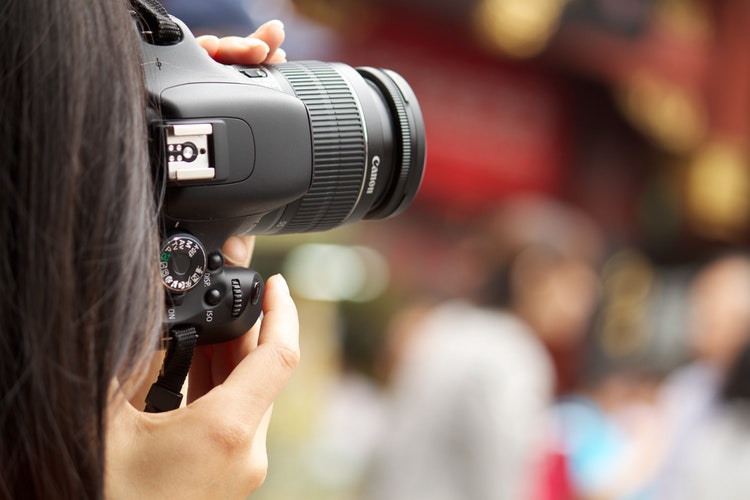
What *does* matter?
Other than details that are specific to your needs (like weather-sturdiness for a camera that will be used primarily outdoors), autofocus speed is one of the most important details you can decide since, no matter what you’re photographing, clarity is a big issue. You’ll need to make sure that your camera is quick enough to clearly take the photographs you want, or else you’re pretty much throwing money away.Optical zoom is also something worth checking on to take pictures from longer distances (“Buying a Digital Camera,” n.d.).
You should also seriously consider what kind of sensor your camera has—or better still, what size of sensor it has. Larger sensors make better photographs, but they also are an indication of a pricier camera (Guinness, 2016). If you can afford that, great! If not though, you might want to scale back that sensor to something more within your budget. Once again, then, we’re at the position where you should do your research based on what you want to use your camera for. Read up on the matter to figure out what type of sensor you need—what sizes will and won’t work—for your intended projects, and try to match that up as best as you can with your budget. It’s easily argued that amateur photographers won’t need the pricier sensors, so don’t dive into expenses you can’t afford that tend to camera details you don’t need!
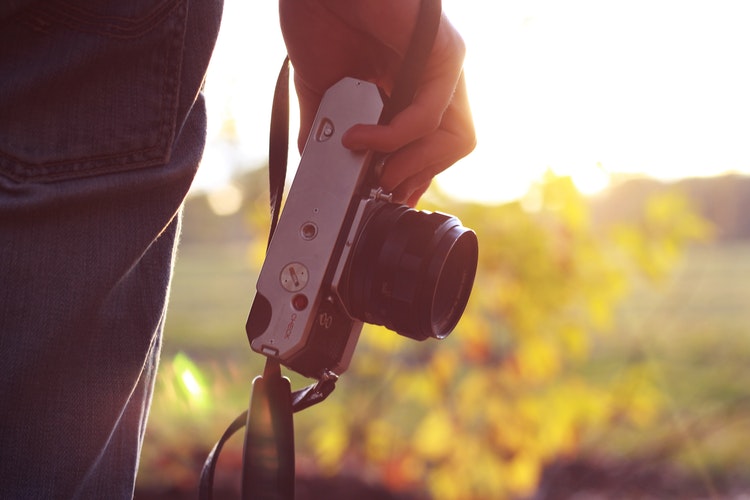
So…
Know what you want to do with your camera, and consider how much money you can comfortably invest in it. Armed with those details, research how all of that can come together in a camera that you can afford—one that will allow you to explore your creative endeavors with the right features, details, and size. Don’t break the bank on something you don’t need! Remember, the camera will be used for your hobbies and designs, so plan it according to your specifications!
References
BeachTeam. (2018, January 29). DSLR vs Mirrorless Cameras: How to Choose What’s Best for You. Beach Camera.
Retrieved from https://www.beachcamera.com/blog/dslr-vs-mirrorless-cameras-choose-whats-best/
Buying a Digital Camera. (n.d.). All Things Photography .
Retrieved from https://www.all-things-photography.com/buying-a-digital-camera/
Guinness, H. (2016, December 17). How to Buy Your First High-Quality Camera. How-To Geek .
Retrieved from https://www.howtogeek.com/285114/how-to-buy-your-first-high-quality-camera/
How to buy a camera. (n.d). Cnet .
Retrieved from https://www.cnet.com/topics/cameras/buying-guide/
Mathies, D. & Elrich, D. (2017, May 4). Digital Camera Buying Guide: What to look for and what to avoid. Digital Trends .
Retrieved from https://www.digitaltrends.com/photography/digital-…
Source: Digitalphotoshack.com


